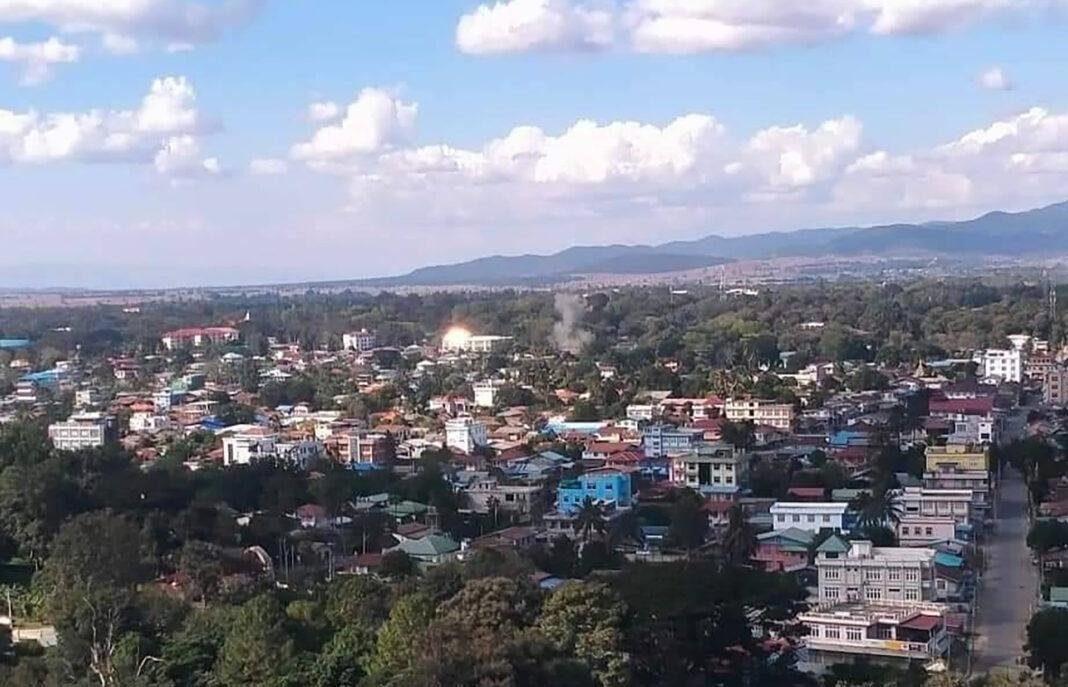By Kantarawaddy Times
Loikaw residents, who have recently returned to the capital town, which has become a battleground between the Military Council and Karenni resistance forces since late last year, are facing severe food shortages.
Due to the ongoing clashes, there are no markets in the town, although some vendors have travelled there to serve the families who have returned. Otherwise, residents must travel outside the town to areas of Loikaw Township controlled by the resistance to purchase food. Inflation has surged due to the depreciating Burmese kyat and the conflict in Burma’s smallest state, resulting in skyrocketing food and petrol prices.
A woman, among the few returnees to the capital, explained that food delivered to Loikaw is sent from Demoso Township, having been dispatched from Shan State and central Burma. She could not specify its cost before reaching Loikaw but mentioned it becomes exceedingly expensive upon purchase.
“The current food prices resemble those in the Mawchi area. As fighting escalates in Loikaw, costs will further rise, and transportation may cease entirely due to clashes,” the woman said.
Following the launch of Operation 1111 by resistance forces in November, most of Loikaw’s 50,000-plus population fled, with many seeking refuge in southern Shan State. However, fighting has since erupted in that area, prompting civilians to flee again, with only a small number opting to return to Loikaw.
A Loikaw man still taking refuge in Taunggyi, Shan State’s capital, said, “I wish to return home, but I am wary of fleeing clashes once more. Additionally, I lack the necessary funds.” He emphasized that returning and subsequently fleeing fighting a second time would incur greater expenses than staying in Taunggyi due to transportation costs.
Some individuals have returned after the Military Council released fake news claiming Loikaw is safe, where it purportedly reinstated its administration, restored electricity lines, and repaired water pipes. Soldiers have even provided rice, oil, and salt to a small number of returnees. However, critics of the junta’s initiative contended that assistance was only extended to families associated with the army, while most people received no aid.
Some argue that the regime summoned people back to utilise them as human shields during clashes with the armed resistance, thereby draining precious resources. This strategy forces resistance forces to care for civilians during military operations and attend to their injuries if they get hurt.
According to locals, in Loikaw, eight cans of rice (one basket) cost 8,000 kyat, a viss (3.5 lbs) of tomatoes costs 6,000 kyat, cooking oil is 14,000 kyat, onion is 4,000 kyat a viss, garlic 8,000 kyat a viss, and petrol is 5,000 kyat per litre.
Some of these items like tomatoes for instance cost half this in Demoso Township, only about 20 miles from the capital.


